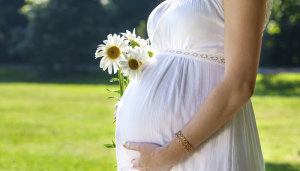When you’re expecting, everyone from your mothers and others will feel free to offer an opinion about what’s safe for your baby and what’s not, and separating fact from fiction isn’t always easy. So which health precautions are prudent during pregnancy?
Here’s what you need to know:
Food
Pregnancy partially suppresses your immune system, making you more vulnerable to food-borne illnesses like listeriosis and salmonella. While it’s relatively uncommon for such illnesses to lead to complications like miscarriage and premature labour, the resulting vomiting or diarrhea can make it harder to get the nutrients your baby needs.
So it’s more important than ever to strictly follow the usual food-safety measures, like using a separate cutting board for raw chicken and meat, and washing fruits and vegetables.
In addition, experts recommend avoiding foods that could harbour the bacteria that cause such infections, or taking special precautions during preparation.
In a few other cases, the concern isn’t infection, but an ingredient or possible contaminant that might increase the chances of certain complications or abnormalities.
Beverages
Juices and sodas
Pass on unpasteurised juice, like some apple ciders. Many caregivers also recommend limiting sweet beverages, including natural sodas and 100 percent fruit juice. Fruit juice contains sugar, which can predispose to weight gain and could contribute to changes in blood sugar. This can cause the baby to grow too large too quickly, increasing the odds of a difficult delivery.
Caffeinated drinks
While the evidence is conflicting, some research suggests that drinking 300 milligrams of caffeine per day — and perhaps even as little as 100 milligrams (roughly the amount in a 250 millilitre cup of coffee) per day — may increase an expectant mom’s chances of having a slightly smaller-than-average baby. The bottom line? “One cup of coffee or tea during the day is certainly reasonable.
Alcohol
Drinking during pregnancy has the potential to cause a wide range of learning and behaviour problems (known as fetal alcohol spectrum disorder) in babies. While you don’t need to worry if you had a drink or two before you knew you were pregnant, it’s best to abstain entirely, since no amount of alcohol has been proven to be safe.
Take folic acid
Not only does a daily 0.4 to 1.0 milligram dose of this nutrient (if you’re overweight, consult your caregiver as you may need more) substantially reduce the risk of birth defects affecting the spinal cord, brain and skull, it may also protect against heart and urinary tract abnormalities and sharply cut the odds of premature birth and pre-eclampsia.
Pregnancy multivitamins containing folic acid may have an edge over a plain folic acid supplement, and a recent study suggests they also decrease the likelihood of low birth weight.
Exercise regularly
Regular physical activity helps prevent excessive weight gain (which ups the odds of problems like pre-eclampsia) and keeps mom’s blood sugar levels from sky rocketing (which causes some babies to grow too big, increasing the chances of a difficult birth). What’s more, walking a half-hour three to four times weekly seems to decrease the chances of developing gestational diabetes.
Eat a healthy diet
A healthy diet goes hand in hand with exercise for curbing excess weight gain and preventing gestational diabetes.
Prevent yourself from flu
Pregnancy substantially increases the odds of having flu symptoms severe enough to require hospitalisation.
Go easy at work
It may be worthwhile to temporarily ease back on your workload, a recent study suggests that high job stress and working more than 32 hours per week may increase the risk of low birth weight.




 Driving Naari Programme launched in Chandigarh
Driving Naari Programme launched in Chandigarh































